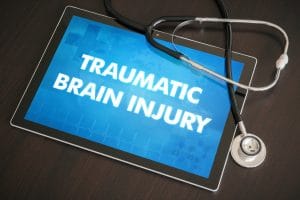How Speech Therapy Helps Fort Worth TBI Patients
 Traumatic brain injury (TBI) patients often need a lifetime of medical care. They may suffer cognitive disabilities, physical harm, and emotional problems. Many patients need to meet with many types of medical specialists and healthcare providers. Speech therapy is one of the many ways victims of car accidents, construction accidents, falls, and medical malpractice begin their recovery process.
Traumatic brain injury (TBI) patients often need a lifetime of medical care. They may suffer cognitive disabilities, physical harm, and emotional problems. Many patients need to meet with many types of medical specialists and healthcare providers. Speech therapy is one of the many ways victims of car accidents, construction accidents, falls, and medical malpractice begin their recovery process.
The aim of rehabilitation is to help Fort Worth TBI victims achieve as much independence as possible. A critical part of any brain injury patient’s rehabilitation process is being able to communicate with their physicians, therapists, family, friends, and coworkers. Speech therapists help patients with this, and many work in an environment that focuses just on TBI patients.
Fort Worth is fortunate to have several TBI resources. The Centre for Neuro Skills located in Fort Worth, Texas is a dedicated traumatic brain injury center. The Baylor Scott & White Institute for Rehabilitation in Fort Worth is a rehabilitation center for patients suffering from “brain injuries, stroke, orthopedic, and other debilitating conditions.”
According to NeuLife Rehab, a neurologic rehab center, there are different speech therapy strategies used for TBI patients, depending on the severity of their injuries and communication problems.
Speech therapy for Fort Worth brain injury patients with dysarthria
A brain injury impairing the nerves in the brain that control muscles can damage speech. The American Speech-Language-Hearing Association (ASHA) defines dysarthria as a brain injury that affects the nerves in the brain that control muscles, when that muscle injury also damages a patient’s speech. Patients with dysarthria may slur their words. Their speech may sound weak, stifled, slow, and like the patient is mumbling.
Speech therapists help a patient with dysarthria by focusing on the patient’s speech coherence. NeuLife reports treatment includes “exercises to regulate lip and tongue coordination, increase breath support, and improve muscle power in the mouth, jaw, tongue, and throat.”
Speech therapy for TBI patients with aphasia
Aphasia is a brain injury condition where the TBI victim has difficulty voicing sounds and syllables. The problem for the patient is that he/she knows what he/she wants to say, but has difficulty putting the words in the correct order. Many patients describe it as being unable to “find the right words.”
A speech therapist treats aphasia patients by providing exercises that allow the patient to slow the pace of their speech and to enunciate each word accurately. In severe cases of aphasia, the speech therapist may add a communication device to facilitate communication, for example:
- Non-technical communication methods, like signaling or pointing.
- Low-technical communication methods, like a pen and paper, a whiteboard, or graphics.
- High-technical communication methods, like “text-to-speech apps, communication apps, and communication devices.”
Speech therapy for improving the memory of TBI patients
Traumatic brain injury victims need to use their memory to speak and communicate effectively. A speech therapist often uses memory support techniques to help the brain injury patient develop language-building skills.
Some of the memory aids that a speech therapist uses include memory logs, documented schedules, calendars, and various exercises to help TBI patients “develop competency as well as communication.”
Improving the social language skills of brain injury patients
Many traumatic brain injury patients need to be re-educated on how to read nonverbal signs, including facial expressions and body language. These patients may also need to be taught how to respond to a standard conversation.
Social language skills help a TBI patient “counterbalance other speech problems they face, like understandability.” TBI patients in Fort Worth can learn these balances by using eye contact, different facial expressions, and different gestures to supplement their communication.
Skilled speech therapists often work with TBI victims in small groups to improve their social language skills.
Improving a TBI patient’s cognitive communication skills
Traumatic brain injury patients may have problems processing new information, which means they need to develop skills for planning or composing their ideas.
Speech therapists help TBI accident victims remember names and numbers, focus on tasks, and ask relevant questions. Speech therapists also help patients recall the sequence of the tasks they need to complete.
Can TBI injury victims claim compensation for speech therapy?
Speech therapy can take months or even years. Speech therapists can also be expensive. Therefore, our Fort Worth traumatic brain injury lawyers work aggressively to achieve two goals in your personal injury case.
The first goal is to show who caused your brain injury and any other injuries. We file lawsuits against negligent drivers, construction site owners, doctors, manufacturers, property owners, and anyone who might have caused your injuries.
The second goal is to demand compensation for all of your economic and non-economic losses.
Economic losses include the cost of all your therapy treatments, any doctor visits, surgeries and hospital stays, medical bills, and medical devices. Your economic losses also include the money you lost because you couldn’t work and any future income you will lose due to your disability.
Non-economic losses include compensation for your daily physical pain and emotional suffering, including anxiety, depression, and stress caused by your injury. Non-economic losses also include the loss of companionship experienced by you and your spouse due to your injuries.
At Slack Davis Sanger, our skilled Fort Worth traumatic brain injury lawyers have the experience and resources to help you get justice for your injuries and suffering. We work with your neurosurgeons, psychologists, and therapists to fully show just how devastating and catastrophic your injuries are. We settle many cases, but we’re always prepared to try your case before a jury. To speak with our skilled and ethical attorneys in Fort Worth, please call 800.455.8686 or fill out our contact form. Also serving clients in Austin, Dallas, and throughout Texas.

The firm handles cases involving catastrophic personal injuries and deaths. Our work spans three decades of handling airplane and helicopter crashes, truck and car accidents, oilfield and construction accidents, and other devastating accidents. We try lawsuits throughout the country in both federal and state courts and have recovered hundreds of millions of dollars for our clients. To date, we have handled or tried cases in 47 states, read more about our attorneys and firm.
